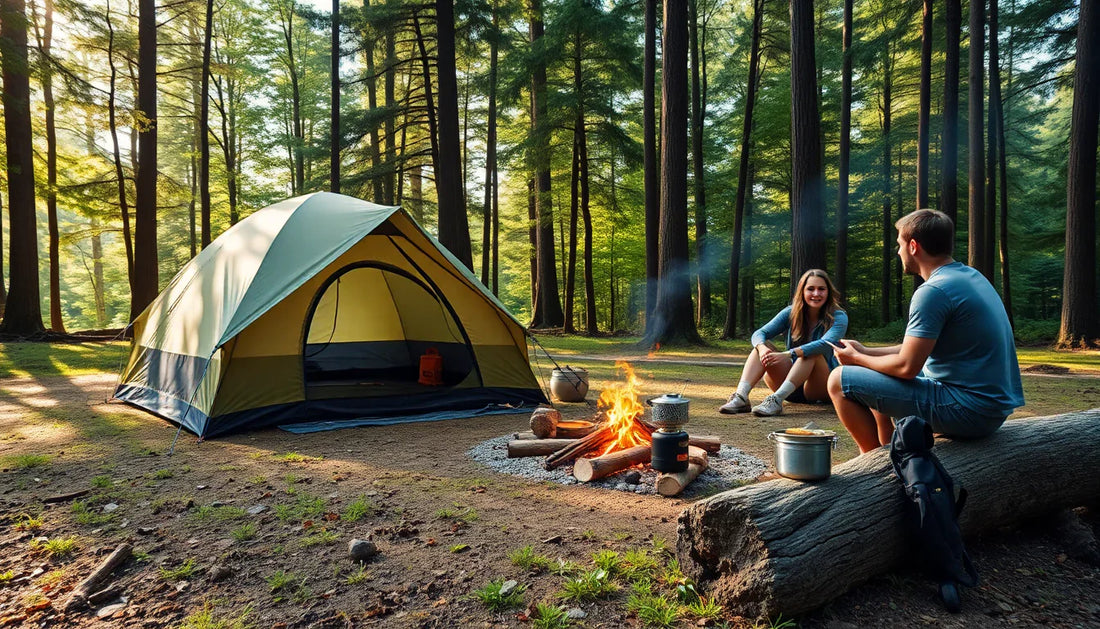
Camping on a Budget: How to Enjoy Nature Without Breaking the Bank
Share
Camping is one of the most rewarding and rejuvenating outdoor experiences. The opportunity to immerse yourself in nature, disconnect from the stresses of daily life, and create cherished memories with loved ones is truly priceless. However, a common misconception is that camping is an expensive endeavor, accessible only to those with deep pockets.
In reality, with some strategic planning and smart budgeting, it's entirely possible to enjoy the great outdoors without breaking the bank. Whether you're a seasoned camper or a newcomer to the world of outdoor adventures, this guide will equip you with the essential tips and tricks to make your next camping trip a budget-friendly success.
Choosing Affordable Camping Destinations
The first step in planning a budget-friendly camping trip is to carefully select your destination. While popular national parks and well-known campgrounds can be alluring, they often come with a higher price tag. Instead, consider exploring lesser-known state parks, regional conservation areas, or even free or low-cost municipal campgrounds. These hidden gems can offer equally stunning natural landscapes and amenities at a fraction of the cost.
Another budget-friendly strategy is to plan your trip during the off-peak season. Camping during the shoulder seasons, such as spring and fall, can provide significant savings on campsite fees, as well as fewer crowds and more availability. Additionally, being flexible with your travel dates can help you take advantage of last-minute deals or discounts.
Essential Affordable Camping Gear
One of the biggest expenses associated with camping is the gear. However, there are several ways to equip yourself without breaking the bank. Secondhand stores, garage sales, and online marketplaces are excellent sources for gently used, high-quality camping equipment. With a little patience and some research, you can often find top-notch gear at a fraction of the retail price.
When it comes to essential camping items, focus on multi-purpose and versatile gear that can serve multiple functions. For example, a sturdy tarp can be used as a shelter, a ground cover, or even a makeshift dining area. Investing in durable, long-lasting equipment may cost more upfront, but it can save you money in the long run by reducing the need for frequent replacements.
If you're feeling crafty, consider DIY camping gear hacks. Simple projects like making your own fire starters, creating a portable camp kitchen, or repurposing everyday items can help you save significantly on gear costs.
Cost-Effective Camping Meals
Food is another area where budget-conscious campers can find significant savings. Rather than relying on expensive pre-packaged camping meals or dining out, focus on planning simple, nutritious, and cost-effective meals. Bulk-buying non-perishable ingredients, such as rice, pasta, and canned goods, can help you stretch your food budget further.
When it comes to meal preparation, embrace the simplicity of campfire cooking. Stick to one-pot meals, foil-wrapped dishes, and easy-to-prepare recipes that make the most of your limited cooking equipment. Additionally, consider bringing a portable camp stove or grill to expand your culinary options without the need for a full-fledged outdoor kitchen.
Transportation and Logistics
Reducing your transportation costs can also contribute to a more budget-friendly camping experience. Carpooling with friends or family members not only saves on fuel expenses but also allows you to split the cost of the trip. Additionally, research fuel-efficient routes and driving techniques to maximize your vehicle's gas mileage.
If you're camping with a larger group, consider cost-sharing logistics such as campsite fees, equipment rentals, and even the cost of food and supplies. By working together, you can distribute the financial burden and make the overall experience more affordable for everyone involved.
Money-Saving Camping Tricks
Beyond the essentials, there are numerous ways to save money and enhance your camping experience. Seek out free or low-cost entertainment options, such as hiking trails, wildlife observation, stargazing, or simply enjoying the natural surroundings. Embrace a minimalist approach to camping, packing only the necessities and avoiding unnecessary expenses.
Additionally, be on the lookout for discounts, coupons, or membership programs that can provide savings on campsite fees, gear, or other camping-related expenses. Many state and national park systems offer discounted rates for seniors, students, or military personnel, so be sure to inquire about any applicable discounts.
Conclusion
Camping is an incredible way to connect with nature, create lasting memories, and enjoy the great outdoors without breaking the bank. By implementing these budget-friendly strategies, you can embark on your next camping adventure with confidence, knowing that you can fully immerse yourself in the beauty of the natural world without sacrificing your financial well-being.
So, pack your gear, plan your meals, and get ready to explore the great outdoors – all while keeping your spending in check. With a little creativity and smart planning, the wonders of camping can be accessible to everyone, regardless of their budget. Happy camping!
